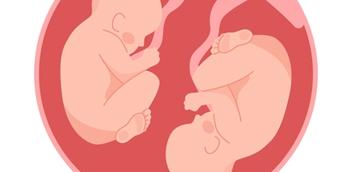
- Vol. 64 No.08
- Volume 64
- Issue 08
Transgender teens: What about fertility preservation?
Research presented during the Pediatric Academic Society (PAS) 2018 Meeting suggests that when it comes to decision-making about hormone therapy (HT), transgender teens and their parents may have different views about preserving biologic fertility.
Research presented during the
Included in the study, by researchers from Children’s Hospital of Philadelphia, were 66 youth and 52 parents who obtained medical care at a pediatric hospital-based clinic for transgender/
gender non-conforming (T/GNC) between January 2017 and December 2017. Youth participants were mean age 16 and a majority (63%) of the participants were assigned female sex at birth. The mean age of the parents was 48. Both youth and parents completed an electronic 36-item survey with questions about their knowledge of fertility preservation (FP), desire to have biologic children, and other factors that might affect desire to pursue FP.
Only 20% of youth and 11.5% of parents found it important to have biologic offspring. For the youths, the importance of having biologic children was associated with perceiving it as something that was important to their parents (OR = 6.07; 9% CI, 1.28 - 28.7). Only 4.5% of youth agreed that they would be willing to delay HT; the importance of having biologic children was the most important predictor for these youth (OR = 6.76; 95% CI, 1.28 – 28.7).
For parents, the most important predictor for delaying HT was lack of information about whether that treatment definitely prevents biologic fertility (OR = 24.57, 95% CI, 3.9 – 154.15). A significant majority of youth (70%) agreed that discomfort with a part of the body that they didn’t identify with was a factor that influenced their decision to undergo FP.
The findings show that fertility is not a major factor in decision-making about HT for the majority of T/NGC youth and their parents. The researchers believe, however, that their data underscore a need for more research on the impact FP has on biologic fertility so that parents and T/NGC youth can make more informed decisions when considering HT.
For more updates from our August issue:
Articles in this issue
over 7 years ago
Maternal Mortality Resources - Initiativesover 7 years ago
Maternal death in rural Americaover 7 years ago
How should states support pregnant teens?over 7 years ago
Teen pregnancy, depression and the Internetover 7 years ago
How do young women feel about IUD insertion?over 7 years ago
Seven recommendations for mild fetal ventriculomegalyover 7 years ago
Was this uterine perforation properly managed?over 7 years ago
Telehealth: A new frontier in ob/gynover 7 years ago
The neglected challenge: Saving America’s rural ob careNewsletter
Get the latest clinical updates, case studies, and expert commentary in obstetric and gynecologic care. Sign up now to stay informed.









